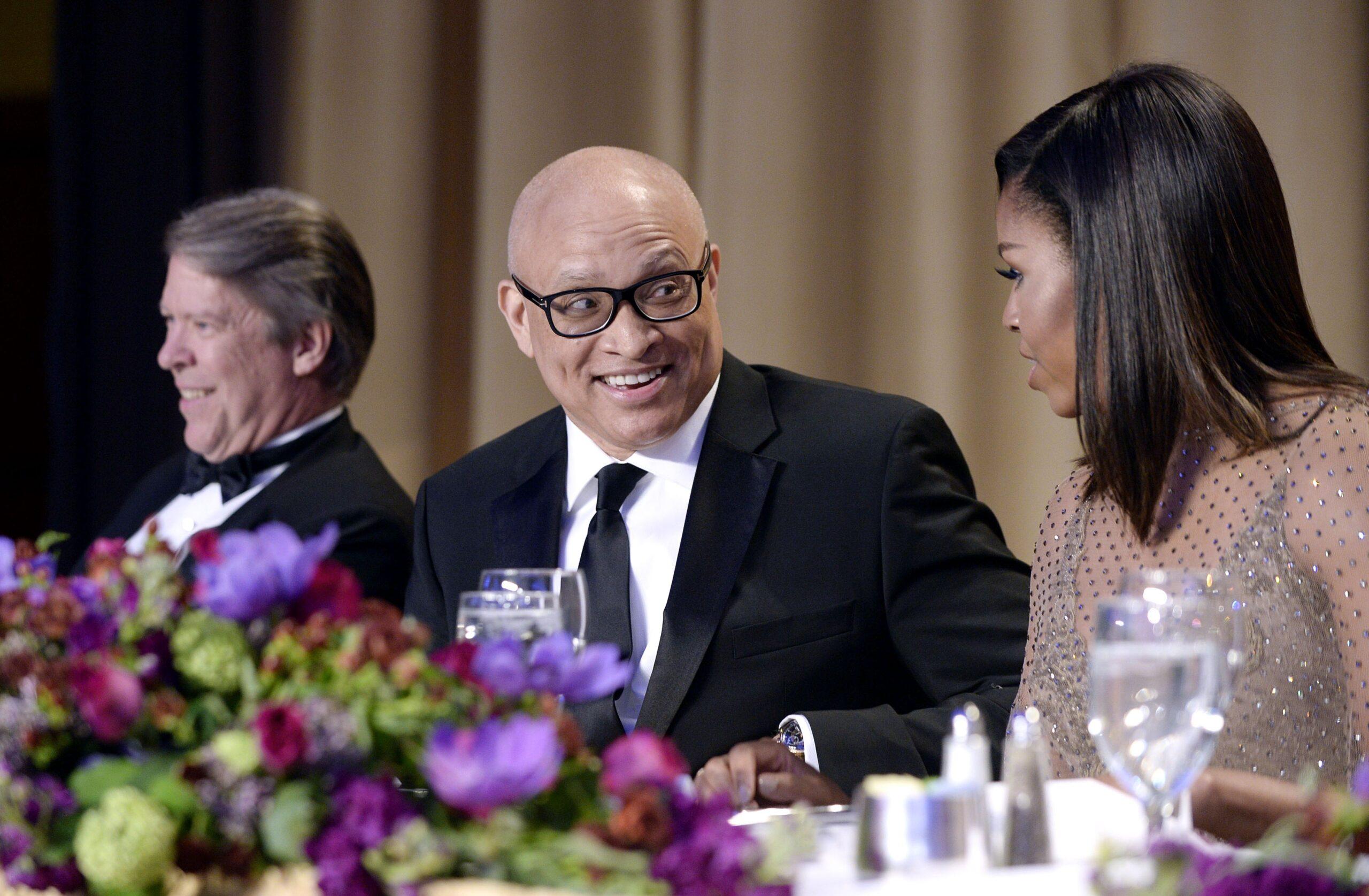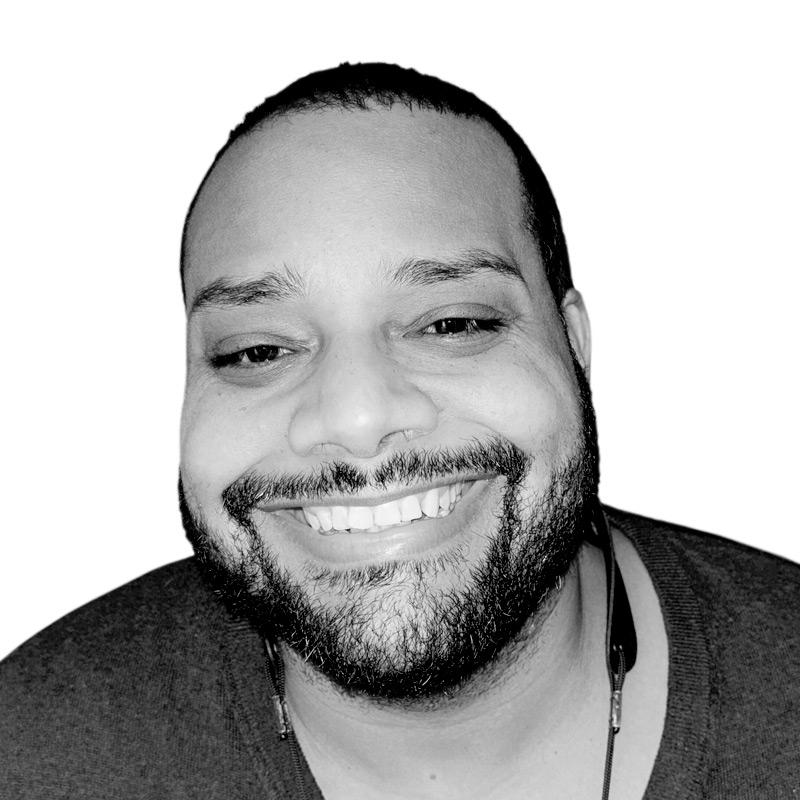
On August 15, without formal warning or notice, Comedy Central canceled The Nightly Show, the comedian Larry Wilmore’s late-night series. Three days later, Wilmore wrapped his final broadcast. After months of covering the 2016 presidential election as a race to “unblacken” the White House, Wilmore suddenly found himself out at a network that just two years ago sought to, according to its former president, “provide an opportunity for the underrepresented voices.” In a statement, Wilmore said, “I guess I hadn’t counted on ‘The Unblackening’ happening to my time slot as well.”
This isn’t the year’s first abrupt and newsworthy falling out between a black host and a big TV network. In March, Melissa Harris-Perry dramatically left MSNBC due to irreconcilable differences regarding her potential role in election coverage. MSNBC had already demoted Reverend Al Sharpton’s program, PoliticsNation, from prime-time weeknights to Sunday mornings. In July, MSNBC canceled The Cycle, thus losing its longtime political correspondent, Touré.
At Comedy Central, the unceremonious departure of Larry Wilmore strikes many observers as a step backward for a network that has otherwise made some notable strides, in tapping black South African comedian Trevor Noah to host The Daily Show and developing a new series with former Daily Show correspondent Jessica Williams. The demise of The Nightly Show is especially unfortunate given its timing: just three months before the 2016 presidential election, and five months before Barack Obama leaves office. While Wilmore has laid himself bare in a series of interviews regarding his show’s cancellation, we reached out to ask him to elaborate on his theory of “unblackening,” the term that he frequently used on-air to describe the end of the Obama presidency — a term which now seems to describe a broader, imminent regression in American media.
What do you mean by the term the “Unblackening”?
We started it as a joke that the black people were moving out of the neighborhood. It took a couple hundred years for black people to get in the White House, and now it’s being unblackened. We saw it as a cynical thing, really — as a comment on some of the Trump supporters. Some of the energy behind that [laughs] was an unblackening type of energy. In a sentimental sense, it’s like, “Wow, the first black president is leaving.” It’s an unblackening in that sense, too.
Trump spent a lot of energy trying to delegitimize President Obama after that birth certificate issue. I just found that very offensive, and so I’ve always thought his candidacy was a kind of unblackening.
How much did media and culture palpably change the moment that the first black president got into office?
It’s hard to quantify. When he came into office, we were in such a financial crisis. There were all these big issues. I always joke that they bring the brother in as the janitor to clean things up [laughs]. At that point, I thought it was kind of unfair. There was a lot of attention at the time on fixing the economy and that sort of thing. I felt like there wasn’t as much attention on a lot of the cultural stuff.
In the beginning, I remember people like Glenn Beck and others on the right really attacked Obama. A couple months into this presidency, they were declaring him Worst President Ever. A couple months in, there were these Hitler comparisons. It was so over the top. It’s insane, when you look back at it today.
At the beginning of Obama’s presidency, we were still in that stage where media hadn’t really hired that many people of color — black people specifically — to come in and provide perspective on him. I do feel like once Obama was elected, there was a shift.
I think you’re right. They had to start keeping it real, as we say [laughs]. I think some of that happened after the O.J. trial in the ’90s. But yeah, this kind of opens our eyes on how we need to spread the commentary better.
To an extent, I feel like I dreamed it all. I’ll wake up in 2017, and media will be just as white and just as conventional as it was before.
It sounds like you’re predicting the unblackening on a larger scale than I ever even imagined it. Who knows. I think sometimes it’s hard to put that thing back in the bottle, but you never know. I work in television comedy, and I’ve seen movements that have opened up diversity, and then two years later, it seems to disappear. Sometimes it can go in cycles, and that can be very frustrating.
So yeah, there’s a lot more people out there. It seems like there’s more pundits now. Am I imagining that? I’ll see CNN sometimes, and there will be 10 pundits sitting across from each other. Do we really need that many opinions on one thing?
I’ve noticed. That’s around the time I stopped watching cable news, when they got past having five guests on for one segment.
It’s really amazing. And then they say things like, “We want to hear from you!” And it’s like, really? You want to hear from us? After all those people you had on your show? Why do you want to hear from us now?
You say you’ve seen networks make headway but then sort of unwind it. What are examples of that?
When I first started in the early ’90s, it was a big push to a lot more diversity, and then in the late ’90s, it kind of went away. It was down for a while; now it seems to be another push the past few years, especially with Shonda Rhimes and her owning a night on television. It seems to be happening more in comedy as well, so that’s good.
I think with the multiple media outlets now, there’s such more of a hunger for content, so you need more diverse voices. More people get the chances to make shows and make space for themselves.
Do you see any parallels between Melissa Harris-Perry’s final days at MSNBC and the final days at Comedy Central for ‘The Nightly Show’?
I don’t know. I feel they’re both important. I’m a fan of Melissa Harris-Perry. I thought she was doing something unique on television. I can’t turn on the TV and find anything like her show right now. We may have been a comedy cousin to them in some ways. I think they served different purposes, and I’m sure there are different reasons why they left, so it’s hard to compare those things.
I’ve gotten so many comments from people. I was at the gas station yesterday, and this woman came up to me. She was Indian American, I think, and she was lamenting the fact that our show was gone because of the types of voices on our show. She was saying there’s nothing else like it on television. We were at the gas station, and she had to come over and talk to me about it. It’s not even like, “Hey, it’s Larry Wilmore! Can I have your autograph?” It’s like, “Larry, we need to talk about something.” It’s really amazing that people have that relationship with our show, where they felt like they were in a conversation with us. And that’s great because that’s the feeling I wanted to have. I’m really sad.
It’s funny I’m talking to you today of all days because today would’ve been the day we would’ve come back to have our first show after break. It’s hitting me now that I don’t have that outlet. I’m looking at the news over the last couple weeks, from Trump to Colin Kaepernick. There’s so many issues to make fun of right now. There’s so many things! Trump at the black church, trying to get the black vote. There’s a lot of things happening, but the election is the primary thing that’s going to hurt the most; not weighing in on that.
You hosted DeRay Mckesson, Mychal Denzel Smith, Janet Mock, and Al Sharpton, among others, for different panel segments. What have you gleaned from them, generally, in terms of their outlook on media diversity and government?
I don’t think there were any broad cultural conversations like that. They were specific. But I was proud of the fact that we brought on voices that I hadn’t heard of and who we were introducing to people. I didn’t care if they were famous or not. I’ve really looked at people who’ve had something to say and were interesting. That’s how you make TV pundits stars: You introduce them and give them a platform. I was happy to do that. That was fun.
I can say that there always seemed to be a sense of, “Thank God that this is here for me to speak on,” sometimes. Like, “Yes, Larry, thank you for having this so we can have this conversation.”
But what’s left? After ‘The Nightly Show,’ after Melissa Harris-Perry, who remains?
I don’t think there’s much out there, unfortunately. I agree with the tone of your voice [laughs]. The tone of your voice really speaks volumes right now. If this appears in print, people won’t be able to know what I’m saying. But I don’t know if there is a place — a home for that, let’s say.

